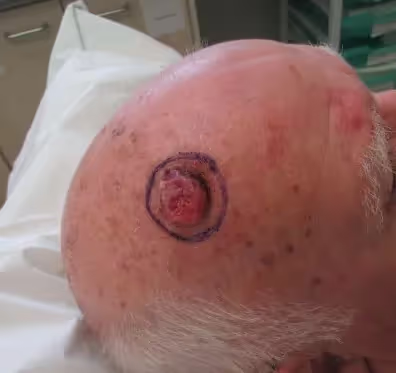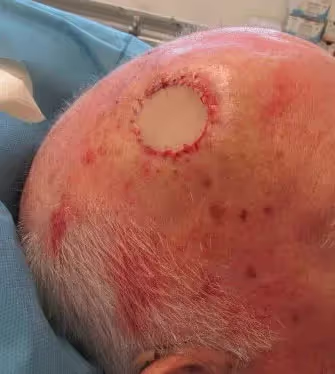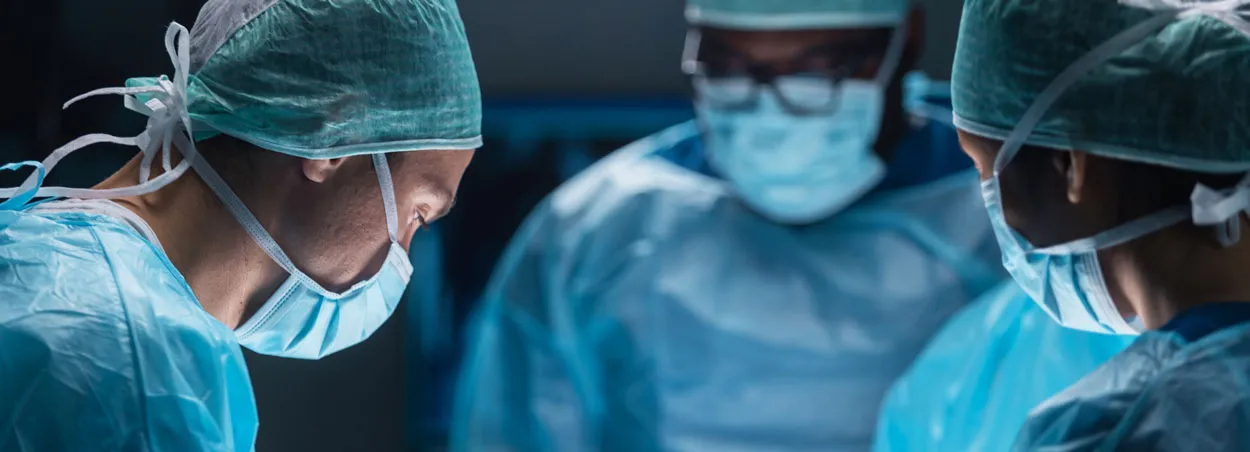

.jpg)
.jpg)
.jpg)
%20(1).jpg)
.jpg)
.jpg)
.jpg)
.jpg)
.jpg)
.jpg)
.jpg)
.jpg)
.jpg)
.jpg)
.jpg)
.jpg)
.jpg)
.jpg)
.jpg)
.jpg)

.avif)


Discharge: You will be allowed home shortly after the surgery.
Recovery Overview: Recovery from basal cell carcinoma (BCC) removal is usually smooth, with mild swelling, bruising, and tenderness for a few days. Pain is typically mild and manageable with over-the-counter painkillers like paracetamol.
Wound Healing: The wound generally heals within 1 to 2 weeks, depending on size and location. Non-dissolvable stitches are removed after 7 to 14 days, while dissolvable ones break down naturally.
Scarring: A scar will form, often red or raised at first, but usually fades over 18 to 24 months. Moisturising, avoiding sun, and using silicone gels or scar products can improve appearance.
Aftercare Instructions: Keep the wound clean and dry for the first 24–48 hours. After that, clean gently, avoid heavy exercise or stretching, and don’t pick scabs or pull stitches.
Sun Protection: Shield the area from sun by using high-SPF sunscreen or covering it outdoors to prevent discoloration and damage.
Infection Prevention: Follow all aftercare steps to lower infection risk and promote healing.
Follow-up Care: Attend all follow-up visits to check healing and ensure full cancer removal. Further treatment may be needed if necessary.
When to Seek Help: Report increased redness, swelling, pus, fever, bleeding, or ongoing pain.
Long-term Outlook: BCC has an excellent prognosis, but regular skin checks and sun safety are important to prevent recurrence.


.avif)


Discharge: You will be allowed home shortly after the surgery.
Recovery Overview: Recovery from basal cell carcinoma (BCC) removal is usually smooth, with mild swelling, bruising, and tenderness for a few days. Pain is typically mild and manageable with over-the-counter painkillers like paracetamol.
Wound Healing: The wound generally heals within 1 to 2 weeks, depending on size and location. Non-dissolvable stitches are removed after 7 to 14 days, while dissolvable ones break down naturally.
Scarring: A scar will form, often red or raised at first, but usually fades over 18 to 24 months. Moisturising, avoiding sun, and using silicone gels or scar products can improve appearance.
Aftercare Instructions: Keep the wound clean and dry for the first 24–48 hours. After that, clean gently, avoid heavy exercise or stretching, and don’t pick scabs or pull stitches.
Sun Protection: Shield the area from sun by using high-SPF sunscreen or covering it outdoors to prevent discoloration and damage.
Infection Prevention: Follow all aftercare steps to lower infection risk and promote healing.
Follow-up Care: Attend all follow-up visits to check healing and ensure full cancer removal. Further treatment may be needed if necessary.
When to Seek Help: Report increased redness, swelling, pus, fever, bleeding, or ongoing pain.
Long-term Outlook: BCC has an excellent prognosis, but regular skin checks and sun safety are important to prevent recurrence.

